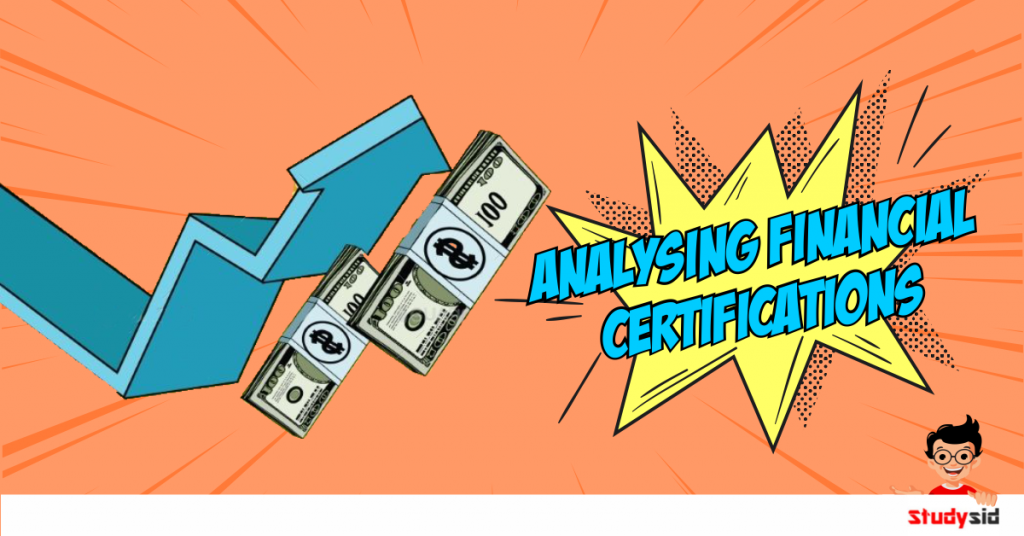The CFA Program, also known as the Chartered Financial Analyst, is a professional financial course specializing in investment analysis, portfolio management, mergers and acquisitions etc. In order for a candidate to be eligible to hold a CFA Charter, the following requirements have to be fulfilled.
- Undergo and pass all the 3 levels of CFA exams.
- Candidates are required to qualify the bachelor’s degree in any relevant field.
- Applicants are required to have work experience of at least 4 years for availing for the course.

The CFA program is extremely beneficial for commerce students looking to make a career in the field of finance after their graduation. The CFA course is considered to be one of the highest standards of professional excellence. It is extremely useful as the certification ensures that you are equipped with hands-on knowledge in the investment industry. To build a remarkable reputation among your clients, employers or colleagues, you have to commit to ethical behaviour and proficiency at work. Therefore, being a CFA charter holder will uplift your credibility in the eyes of clients and colleagues.
In addition to this, the charter is a great way to improve employability for commerce students as companies are always on the lookout for people with the right asset management skills, who can formulate investment strategies and perform investment analysis.
CFA Syllabus
The curriculum has 3 levels which have to be cleared in order to be eligible for the CFA charter. The course mainly includes finance related subjects, with the level wise subject list shared below:-
Level I:
- Ethical and Professional Standards
- Quantitative Methods
- Economics
- Final Reporting and Analysis
- Corporate Finance
- Portfolio Management
- Equity Investments
- Fixed Income
- Derivatives
- Alternative Investments
Level II:
- Ethical and Professional Standards
- Quantitative Methods
- Economics
- Financial Reporting and Analysis
- Corporate Finance
- Equity Valuation
- Fixed Income
- Derivative Investment
- Alternative Investments
- Portfolio Management
Level III:
- Ethical and Professional Standards
- Behavioural Finance, Individual Investors, and Institutional Investors
- Capital Market Expectations
- Asset Allocation
- Fixed Income and Equity Portfolio Management
- Alternative Investments, Risk Management, and the application of Derivatives
- Portfolio: Execution, Evaluation and Attribution, and Global Investment Performance Standards
Being a commerce graduate, one will have a head start in certain topics such as economics, quantitative methods, financial reporting and analysis etc. While all these subjects are much more extensive than one may have studied during school, some topics are still overlapping and therefore several students with a commerce background may find such subjects easy.
Commerce students with a background in finance may also have studied subjects like corporate finance and budgeting which can make preparation for such subjects easier for them.
Students from any background are suggested to focus on and start preparing early for the subject of Financial Reporting and Analysis as the syllabus is very vast and there are a lot of rules that need to be memorized. Revision and practising questions from different sources should be a key part of your preparation. It is also suggested to keep the subject of Ethical and Professional Standards for studying at the latter stages as it involves memorization of different rules and cases.
Graduates after the successful completion of the CFA program have many lucrative opportunities in private as well as government sectors in domestic as well as international grounds. The aspirants are trained to handle the workings of the finance industries, providing the skills to make their stand in the investment career through their commitment to excellence. Chartered Financial Analysts have long-term career opportunities as professionals in finance to work in the industry of corporate, banking and financial services. They have opportunities in the field of business, insurance firms, auditing departments, Excise & Taxation departments as well as Educational Institutes. They can become auditors, finance analysts, Finance manager and so on.




